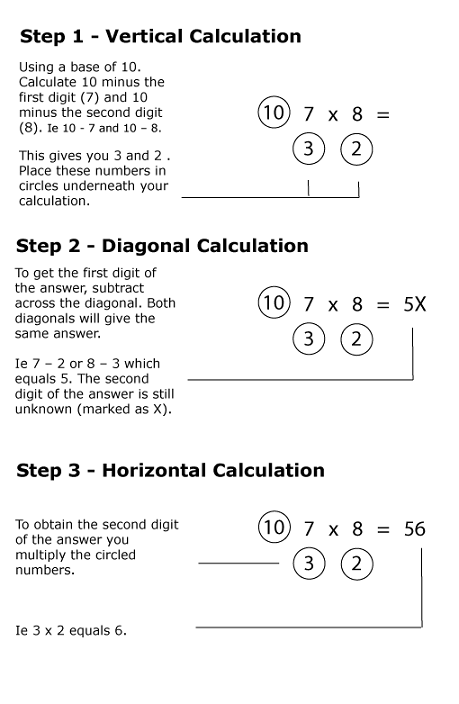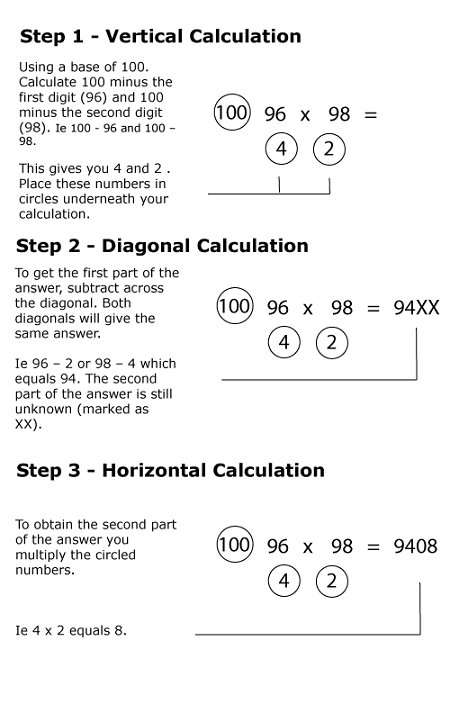Isn’t it amazing what treasures you can find in your local library? Last week I happened to come across a book on teaching multiplication called Speed Mathematics: Secret Skills for Quick Calculation
by Bill Handley.
The book promised to provide the secret to lightning mental calculation and had me hooked from there. Within five minutes I had skimmed through the book to understand the different techniques and fifteen minutes later I was back at home reading through the introduction.
It was a big eye opener for me. Like most people, I had been raised on memorisation of my times tables through repetition followed by even more repetition. Addition and subtraction were slow methodical processes. Calculating square roots and long division were just torture. In Handleys book, he outlines mathematical techniques that are simple, fast and highly effective.
How does it work?
The methods outlined in the book use reference numbers to quickly calculate correct answers.
Take an example such as 7 x 8.
Through traditional multiplication methods a child has three options when solving this question:
- add seven 8s (ie 8 + 8 + 8 + 8 + 8 + 8 + 8)
- have memorised their 7 or 8 times tables
- used a combination of these methods (ie 5 x 8 = 40 plus two more 8s to give you 56).
All these methods are prone to error for a young child.
Speed multiplication is able to simplify the calculation through the use of a reference number. The example below uses 10 as a reference number.

The next example uses 100 as a reference number.
Whats the parenting edge?
Teaching your kids a speed mathematics technique is likely to provide your children with multiple advantages:
- Better grades they will have an edge over their classmates as they will be using a superior technique for multiplication
- Improved confidence being able to complete exercises and tests faster than their peers
- Enjoyment of mathematics derive enjoyment from being able to cleverly and easily solve difficult multiplication problems
- Breakthrough Potential if your child has struggled with traditional multiplication techniques then trying an alternative method might bring about success
The drawbacks are that:
- Resources to teach your kids speed mathematics you will need to buy the appropriate teaching aids and spend the time to or otherwise pay for a tutor to teach your child.
- Confusion youll be teaching one technique at home and another will be taught at school
Other ideas
There are a number of different speed math systems out there that have unique advantages and disadvantages. You might also want to look into the Vedic math system or the Trachtenberg system.

